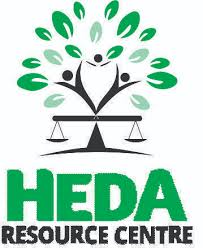By Christopher Burke
Sub-Saharan Africa holds roughly 30 percent of the world’s known mineral reserves and nearly 12 percent of global oil reserves. Realizing the full potential of this resource wealth is frequently undermined by opaque financial flows, environmental degradation and missed opportunities for sustainable growth. Critical information associated with payments, revenue allocation and public spending is often locked away in dense, technical documents, beyond reach of the communities and stakeholders most affected by mining, oil and gas operations.
Extractive industries undoubtedly contribute to African economies. Oil accounts for around 10 percent of Nigeria’s GDP and about 80 percent of export earnings. In Zambia, copper generates nearly 75 percent of foreign exchange, but without effective transparency, these revenues rarely translate into broad-based poverty alleviation, environmental stewardship or resilient development. In reality, extractive projects are frequently associated with deforestation, water contamination, degraded farmland and long-term social challenges.
Transparency is now widely advocated as a catalyst for change. The past two decades have seen the rise of international frameworks beginning to shift norms in the extractive sector. The Extractive Industries Transparency Initiative (EITI) is among the best known and active in over 50 countries; setting standards for publishing payments, contracts and ownership information. The Kimberley Process Certification Scheme (KPCS) has sharply reduced the share of conflict diamonds in global markets and civil society movements such as Publish What You Pay (PWYP) campaign for the disclosure of extractive revenues and their uses.
Transparency is not only a regulatory requirement, but inherent to environmental, social and governance (ESG) standards that demand open disclosure of environmental impacts, social outcomes and governance practices alongside financial information. New laws including Section 1504 of the US Dodd-Frank Act and the EU’s transparency directives require project-level publication of payments to governments that not only cover income, but environmental royalties, rehabilitation funds and pollution penalties. The OECD Due Diligence Guidance, the African Mining Vision (AMV) and the Natural Resource Charter have each established benchmarks for responsible sourcing, contract transparency and accountability inclusive of environmental and social obligations.
The value of such frameworks goes beyond theory. The publication of payment data contributed to the recovery of US$2.4 billion missing tax payments and royalties in Nigeria and highlighted US$88 million missing in the Democratic Republic of Congo (DRC) identifying a shortfall of US$26 associated with one tax collection company in particular. The publication of payment data uncovered $350,000 in embezzled funds in Mozambique with similar examples in Burkina Faso and other countries around the world. PWYP’s advocacy helped Ghana pass the Petroleum Revenue Management Act, resulting in the regular publication of petroleum revenues and the establishment of an Investment Advisory Committee. The Kimberley Process has also played a crucial role in curbing diamond-fueled conflicts that devastated communities and landscapes in Sierra Leone and Angola.
Transparency can only be meaningful if information reaches and empowers the public, including those on the frontlines of environmental impact. Communication remains a challenge. Across much of Sub-Saharan Africa, nearly 70 percent of rural households lack electricity and 85 percent lack clean cooking fuels. Reports produced under EITI and similar initiatives routinely exceed 100 pages and are packed with technical data, but are often silent on the environmental risks. While communities are generally aware of nearby extractive projects, very few have knowledge of the payments, let alone environmental mitigation funds, their local governments receive.
Digital divides further complicate matters. While 80 percent of adults own a mobile phone, only half have smartphones, and just a quarter have reliable internet. Even where disclosures are online, they seldom include easily understandable summaries, data in local vernacular languages and simplified visualizations of the impacts on water, soil or air quality.
Solutions exist and they are rooted in smarter communication and genuine engagement. Leading frameworks—such as the Open Contracting Partnership and the African Mining Vision—show how concise, accessible reporting in local languages can reach more people. These materials are most effective when distributed via trusted local channels: community radio, newspapers or even SMS.
Nigeria’s Tracka project allows citizens to monitor thousands of public projects including initiatives with environmental components making use of simple text messages and town hall meetings. Kenya’s Open County initiative provides easy access to budget and revenue data, including information on funds allocated for environmental protection. Radio broadcasts in local languages in Liberia have played a vital role in explaining how forestry and mining royalties are spent on clinics, schools or forest conservation–empowering communities to demand greater accountability and the sustainable use of resources.
Innovative visual tools are also changing the game. The presentation of this complex financial, health and environmental data in more accessible formats can help both citizens and policymakers understand the broader impacts of mining activities. Royalty Management Systems (RMS) are harnessing digital advances including blockchain, AI and real-time analytics to automate tasks such as production tracking, royalty calculation, compliance and payment collection. These approaches all require political will and significant investment in capacity-building. Local data officers and community leaders across the continent need practical training, real-world examples and sustained support to embed effective communication practices and keep pace with evolving technologies.
Transparency in the extractive sector must be about more than just numbers. Turning information into action is essential—empowering citizens to demand financial accountability and genuine protection for their environment. Embracing ESG principles can strengthen these efforts, encouraging responsible resource management that benefits both people and planet. Strategic, inclusive communication that draws on global best practices, ESG standards and Africa’s own visions for responsible development provides a path forward. Harnessing these principles can ensure that the continent’s natural wealth delivers tangible benefits for both people and the environment.







Very useful tips! I’m excited to implement them soon.
This helped clarify a lot of questions I had.